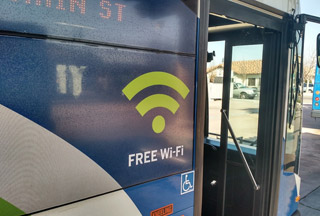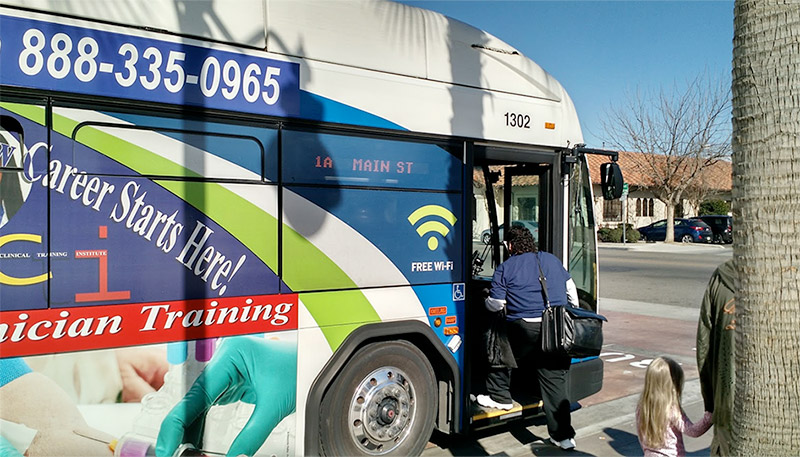
4G Transition Creates Enhanced Commuter Experience, Increased Bus Safety & New Efficiencies for Visalia
Public transportation use is on the rise as the number of miles driven in a vehicles decreases at a significant rate. In 2013, more travelers used busses, trains and subways than any year since 1956 in the United States. These trends create opportunities for cities that provide efficient solutions for residents and tourists who seek alternatives to driving.
Visalia, California, a city of approximately 128,000 residents, is known as the Gateway to the Sequoias and the Jewel of the Valley. Visalia Transit provides travel to and from shopping centers, local neighborhoods, nearby colleges and businesses, shuttles to the nearby national parks and trolley rides in Visalia’s Downtown District.
Transit Authorities, such as Visalia Transit, offer services to increase ridership and are continuously making improvements to ensure the best experience possible. Commuters want to make the most of their travel time, and with more people using public transportation, Visalia finds safety to be more important than ever. To achieve both greater levels of service and security, systems must be in place to monitor the heartbeat of each bus and train.
Business Challenge
Visalia Transit needed a new modem for bus operations as AT&T phased out the 2G network. The need to transition came with an opportunity, as bus modems utilizing the 2G network would not only become obsolete, they experienced an inconsistent connection.
With the 2G connection, only 40% of the fleet could be tracked, which posed a security risk if something went wrong on a bus. Dispatch centers also had no remote access to bus video recordings. A transit employee had to physically access footage from the bus within a specific — and limited — timeframe.
Solution
As part of the selection process, Visalia Transit compared Digi TransPort® WR44 R cellular routers to a variety of options. The ability to equip each bus with a consistent and reliable 4G Verizon connection paired with Digi’s dedicated tech support made the decision to select the Digi TransPort WR44 R easy.

The Digi TransPort WR44 R includes multiple antennas for failover, dual Wi-Fi, dual LTE antennas and GPS connectivity. Testing with the routers began in mid-2013 and officially debuted later that year.
Results
Today, 100% of the bus fleet can be tracked in real-time. The Digi TransPort WR44 R acts as the heartbeat of the bus by running mission critical tasks such as currency tracking and remote video access. “With the addition of the Digi modem, we can now view real-time video while in route and archive video through Digi's Wi-Fi connection when the bus is back on campus for the night,” explained Joe Vela, Office Systems Analyst, City of Visalia.
Visalia also found that pairing the Digi TransPort WR44 R with other parts of the bus system even made offering public access to free Wi-Fi a possibility. In September 2013, Visalia Transit opened up access to free onboard Wi-Fi for commuters.
“Digi is the heartbeat of the bus transit connection, which enables tracking of cash receivables, the video security system and passenger Wi-Fi,” said Vela.
Since the initial implementation of the new system, Visalia Transit has seen an increase in overall ridership. By allowing passengers a better experience and efficient travel, they have significantly increased the value of their services, and have seen an incredible return on investment.
“Over the last 30 days riders have downloaded 547 gigs across the fleet,” reported Alex Deats, Office Systems Analyst, City of Visalia. “And, there have been anywhere from 3,200-3,500 passenger connections in one month.”
“Digi’s technology and support has allowed us to make what could’ve been a difficult transition easy, and helped us improve the safety and experience for riders and employees,” Vela said.